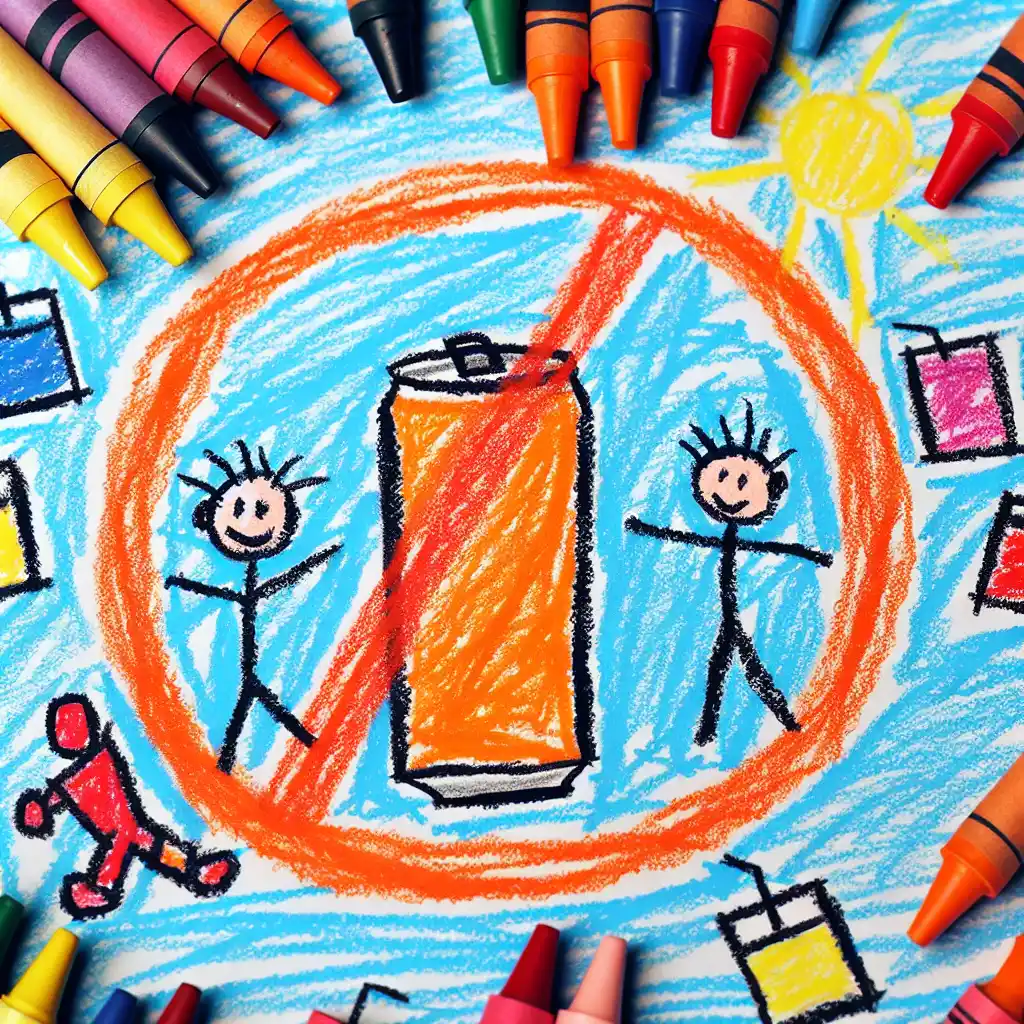Energy drinks to be banned for under-16s in England

Explain Like I'm 5
Imagine you have a super-fast toy car that runs on special batteries. These batteries make the car zoom really fast, but if you use them too much, the car starts doing wacky things like spinning or crashing. So, your parents decide that these special batteries aren't great for your toy car and stop you from using them until you’re older. That's kind of what's happening in England with kids under 16 and energy drinks. These drinks make people feel super energetic really quickly, but they aren't so good for kids’ health. So, the big decision-makers in England said, "Let's not let kids have these until they are older."
Explain Like I'm 10
In England, there's a new rule that kids under 16 can't buy energy drinks anymore. Why? Because these drinks are like a turbo boost for your body. They can make you feel super awake and full of energy because they have lots of caffeine and sugar. But just like too much ice cream can give you a tummy ache, too much caffeine can make it hard for kids to focus, mess with their sleep, and even make their hearts beat funny. Wes Streeting, who helps make sure people in England stay healthy, listened to doctors and parents who were worried about this. They all think that it’s better if only older teens and adults can buy these drinks. It’s kind of like not being allowed to watch certain scary movies until you're older because they might give you nightmares.
Explain Like I'm 15
In England, the government is stepping in to regulate energy drinks, banning their sale to anyone under 16. This decision didn't just come out of nowhere. It's based on growing concerns from health experts and the public about the negative effects of high caffeine and sugar levels found in these drinks on children and teenagers. These ingredients, while giving a temporary boost in energy and alertness, can lead to more serious issues like heart problems, anxiety, and sleep disturbances.
The timing of this decision is crucial as it reflects a broader trend of increasing awareness and action on public health issues, especially those affecting younger populations. By restricting access to these drinks, the government aims to curb the potential health risks.
The ban raises several questions about its implementation and effectiveness. Will it actually stop young people from consuming these drinks, or will they find other ways to get them? Also, how will shops adjust, and what will be the consequences for companies that produce these beverages? This move by the Health and Social Care Secretary, Wes Streeting, aligns with actions taken by other countries and could set a precedent for further regulations on products marketed towards children and teens. The broader implications could influence global market trends and health policies elsewhere, reflecting a growing consensus on the need to protect young people’s health in an increasingly complex food and beverage market.
Want to read the original story?
View Original Source